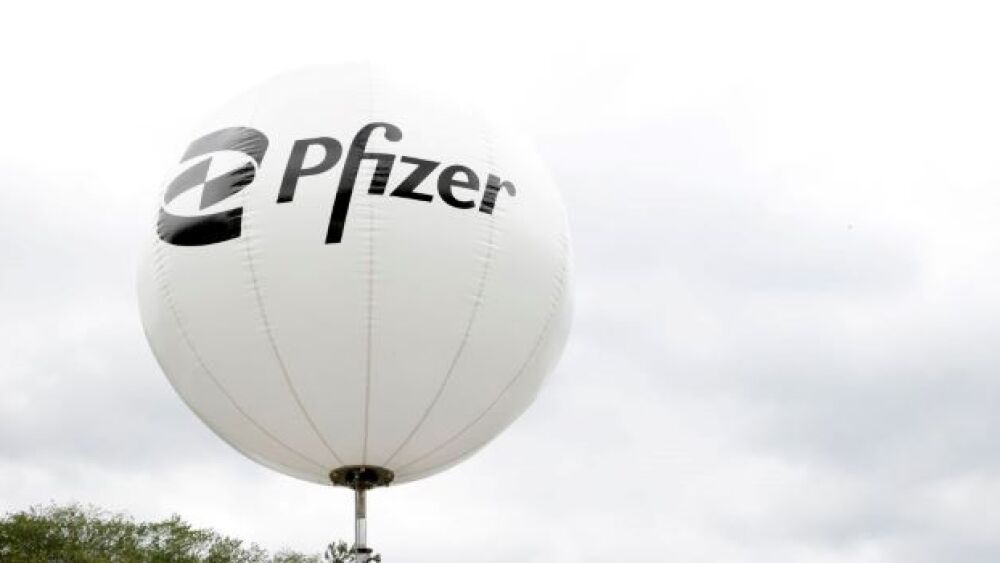Pfizer’s oral antiviral treatment for COVID-19 is making its way through regulatory hurdles. The company is working with global manufacturers to ensure a steady supply of the medication.
Jamie McCarthy/Getty Images for Live Nation
Pfizer’s oral antiviral treatment for COVID-19 is making its way through regulatory hurdles, and the company is already cooperating with global manufacturers to ensure a steady supply of the medication will be available for international use.
This morning, Pfizer announced a licensing agreement with the Medicines Patent Pool (MPP), a public health organization backed by the United Nations that will allow it to sign agreements with other manufacturers to supply more than half of the world’s population with the medication.
Earlier this month, Pfizer announced plans to seek Emergency Use Authorization for the antiviral drug dubbed Paxlovid after an interim analysis of Phase III data revealed the medication can reduce the risk of hospitalization or death by 89% in high-risk adults who were not hospitalized for treatment. According to the company, positive results were seen in patients within three days of treatment following the onset of COVID-19
–related symptoms. Paxlovid is a SARS-CoV-2 protease inhibitor antiviral therapy designed to block the SARS-CoV-2-3CL protease, an enzyme the coronavirus needs to replicate in the body. Paxlovid is co-administered with a low dose of the HIV drug ritonavir.
Pfizer Chairman and Chief Executive Officer Albert Bourla, Ph.D., said the company is committed to providing scientific breakthroughs to help bring an end to the pandemic. Oral antiviral treatments, such as Paxlovid, can significantly reduce the severity of infections and reduce the strain on health-care systems.
“We must work to ensure that all people
—regardless of where they live or their circumstances
—have access to these breakthroughs, and we are pleased to be able to work with MPP to further our commitment to equity,” Bourla said in a statement.
Through the partnership with MPP and sub-licensing agreement, generics manufacturers from around the world will be able to provide enough medication to supply 95 countries or approximately 53% of the world’s population. This will include regions that have been difficult to provide with vaccines, such as Sub-Saharan Africa and countries in impoverished regions around the globe. Pfizer said it “will not receive royalties on sales in low-income countries and will further waive royalties on sales in all countries covered by the agreement while COVID-19 continues to be classified as a public health emergency of international concern by the World Health Organization.”
“This license is so important because, if authorized or approved, this oral drug is particularly well-suited for low- and middle-income countries and could play a critical role in saving lives, contributing to global efforts to fight the current pandemic,” Charles Gore, executive director of MPP, said in a statement.
Gore noted that MPP also has a license to manufacture the HIV drug ritonavir, taken in conjunction with Paxlovid. In addition to manufacturing the Pfizer antiviral, Gore said MPP will be working with generic companies to ensure a sufficient supply of ritonavir.
Pfizer’s partnership with MPP comes a week after the United Kingdom granted Emergency Use Authorization to Merck’s antiviral treatment, molnupiravir. The oral medication, co-developed with Ridgeback Biotherapeutics, was greenlit for use in adults with mild-to-moderate COVID-19. Molnupiravir is under review in the U.S. and Europe. Interim data showed that molnupiravir reduced the risk for hospitalization and death in adults by about 50%.





